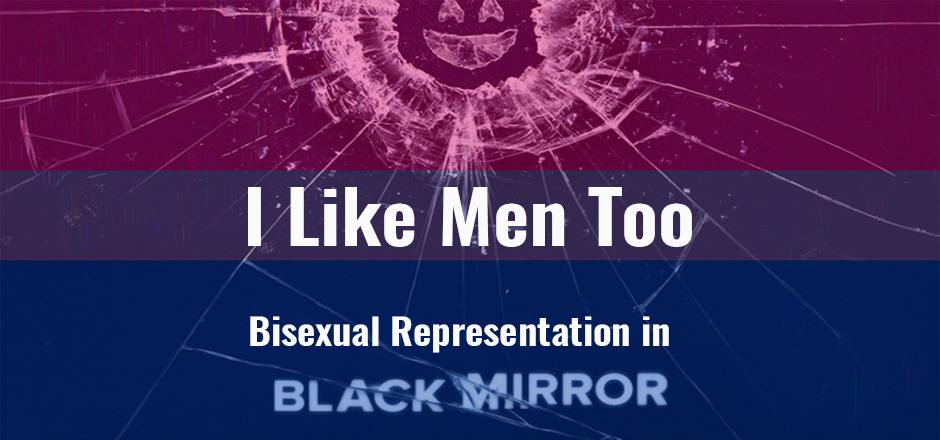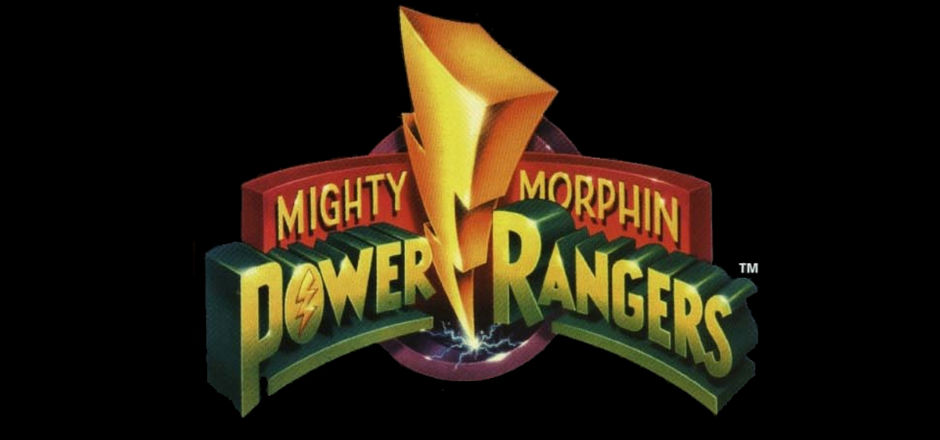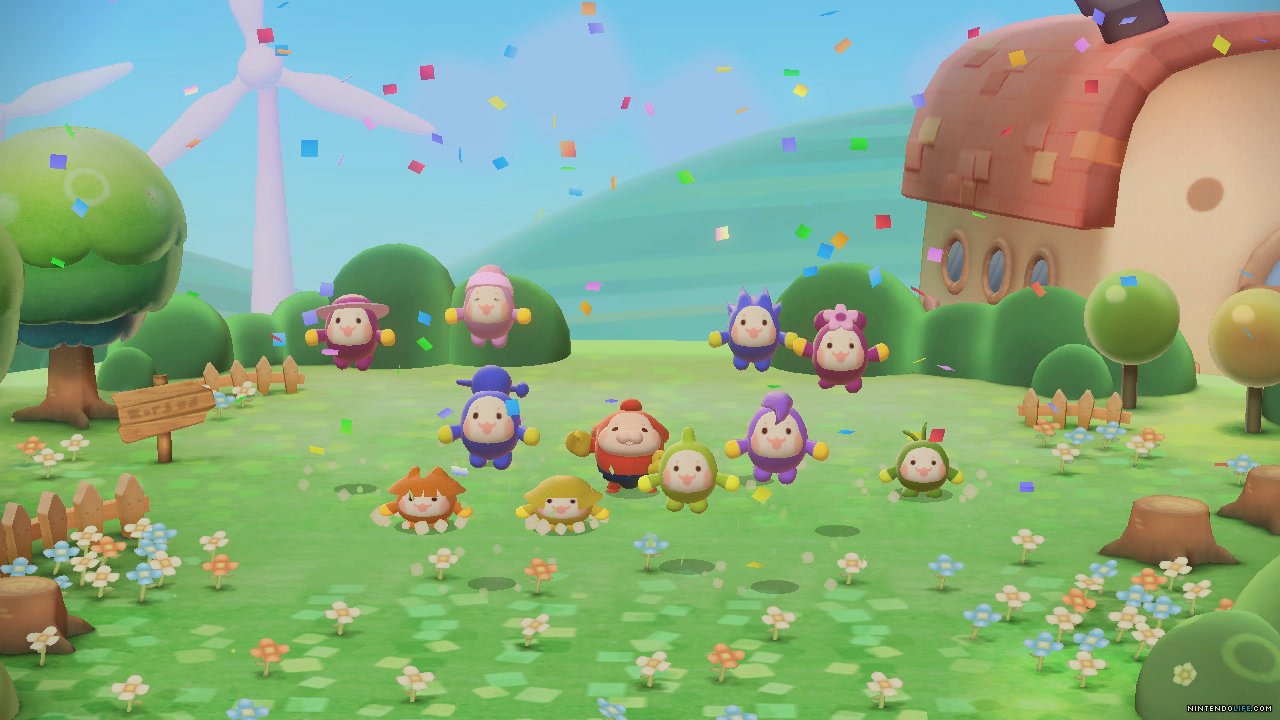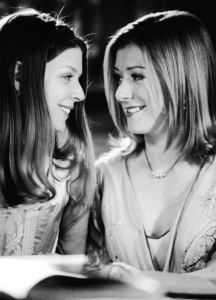[blocktext align=”center”]This article is dark and full of Black Mirror spoilers.[/blocktext]
Of all the movies, TV shows, and books around right now, I never thought Netflix’s dystopian series Black Mirror would be a source of comfort and joy. Most Black Mirror episodes are well-written, beautifully produced theses on why humans are the worst. Watching too many in a row can make you want to sit in the shower for a while and contemplate going off the grid.
But in the midst of all the angst, there’s the episode “San Junipero.” It tells the story of Kelly and Yorkie, two women in a mysterious vacation destination called San Junipero. It’s revealed late in the episode that the city is a virtual afterlife – when you die, your consciousness can be uploaded to San Junipero forever. In San Junipero, everyone is young and having a good time because they have nothing to fear.
The story begins when Yorkie visits San Junipero for the first time as a “tourist.” When you’re dying, you’re allowed to visit the town for five hours a week on Saturdays to see if you want to spend your afterlife there. Yorkie is shy and unsure, drinking only cokes and keeping to herself until she meets Kelly.
A beautiful love story unfolds between Yorkie and Kelly. Kelly is outgoing and unapologetically bisexual. She’s in San Junipero to just pass the time and have fun, and is not looking for anything permanent until she “inconveniently” falls for Yorkie.
In real life, Yorkie has been confined to a hospital bed for decades because she was left quadriplegic after a car accident. She’s experiencing many things for the first time in San Junipero, including the freedom to explore her sexuality. Her parents did not want a gay daughter. Her accident occurred after she came out to them and was summarily rejected.
Looking for guidance, Yorkie asks Kelly at one point: “How did you know that you liked women?” To which Kelly responds: “I like men too.”
And I sat bolt upright. San Junipero is a wonderful episode because it features an interracial homosexual relationship between two women who get to live together forever in paradise. As this article points out, the fact that neither woman was sacrificed is enough to make it exceptional.
But the depiction of Kelly’s bisexuality – the fact that it exists, and is not questioned – is what startled me. Bisexuality is often treated as a stepping stone to being “gay now,” as this article about Buffy the Vampire Slayer expresses, or as a way to show that a woman is sexy and deviant.
And on Firefly, when Inara, a sex worker, takes on a female client, nobody can believe it and all the male characters start drooling. Her decision to have sex with a woman is treated as a tasty tidbit for male sexual fantasy.
But the fact is, women who are bisexual are not all sex-obsessed or lesbians in denial. Often they’re just women who have romantic feelings for some women and some men. I know, because I am bisexual. I’m not a unicorn, I’m not a lesbian, and it’s not just a phase. Sometimes I want to date men, and sometimes I want to date women.
People tend to have a hard time with this. They fixate on the idea that you can only be one or the other, and if you end up in a committed relationship, the gender of your partner is clearly the gender you prefer.
But Kelly eloquently expresses that that idea is ridiculous. Being in a relationship doesn’t preclude you from other attractions and crushes. Kelly was married to a man for 49 years and loved him deeply. She knew she was attracted to women and other men while she was married to him, but like most people in monogamous relationships, did not act on these attractions.
Her marriage to a man doesn’t make her any less bisexual, and her love for Yorkie doesn’t make her marriage somehow invalid. Both are allowed, and both are legitimate.
Actor Kumail Nanjiani recently tweeted about the importance of representation in the latest Star Wars movie. He points out that at any age, seeing yourself reflected onscreen is touching.
Representation is important because you can see yourself in these characters and think ‘I am not alone, people like me have stories to tell, and those stories are important.’
Now, I’m not going to pretend that I don’t have privilege when it comes to representation. I’m a petite, white, cisgender, bookish brunette woman. I see myself in Belle, Hermione, Rory Gilmore, and Gemma Simmons. I’ve never had to question that I had a place in the world because women like me are everywhere, and almost always land on the side of the good guys in stories.
But for my entire adolescence, the mainstream stories I saw were heteronormative. Early on, Disney movies taught me how heterosexual romance is supposed to work, and that all the characters I identified with were good at making men fall in love with them.
I still don’t talk openly about my sexuality (and some people may be surprised to read about it here) because I don’t have the vocabulary. I rarely see bisexuality the way I live it reflected in the media. So San Junipero is a beautiful little nugget that I can cling to, to point to as proof that I’m not alone.
This story was, surprisingly, written by a straight white man, Charlie Brooker, who in an interview said: “When I was first thinking about the story, it was a heterosexual couple. And then I thought, okay, what if that isn’t the case?” This idea seems so simple.
Of course, for some writers starting out, their best intentions can be thwarted by industry insistence on straying from the controversial. I can’t imagine how many times young writers have probably been told “okay, but what if they were a straight white couple?”
But my plea to writers, editors, studio execs, and actors everywhere – especially those who already have enough clout in the industry to be given free reign – is to ask yourself the question Brooker did. When you begin another story about straight white people, stop for a moment and think “Okay, what if that isn’t the case?”
In the case of San Junipero, subverting that norm resulted in a truly beautiful piece of television that means a lot to many people. I hope, especially in the current political climate, that more artists and producers will start making an effort for inclusion. Brooker proved that it’s well worth risking controversy to do so.
[coffee]







Great article! I had the same reaction you did. As a bisexual woman married to a man, seeing Kelly’s marriage treated with respect rather than as an ‘unfortunate event’ in the life of a secretly lesbian woman was so refreshing. The episode honored both Kelly’s love for her husband and her love for Yorkie without the need to pit them against each other. Bi rep done right, and we need so much more of it!